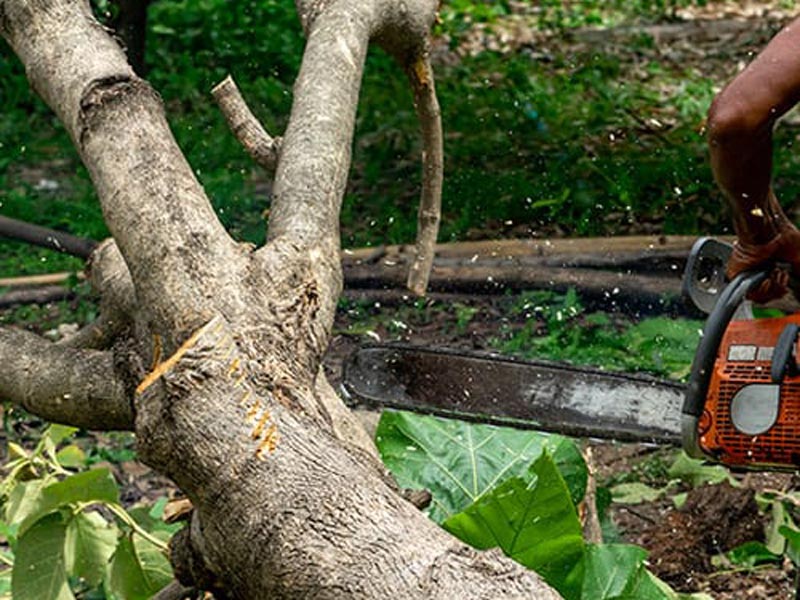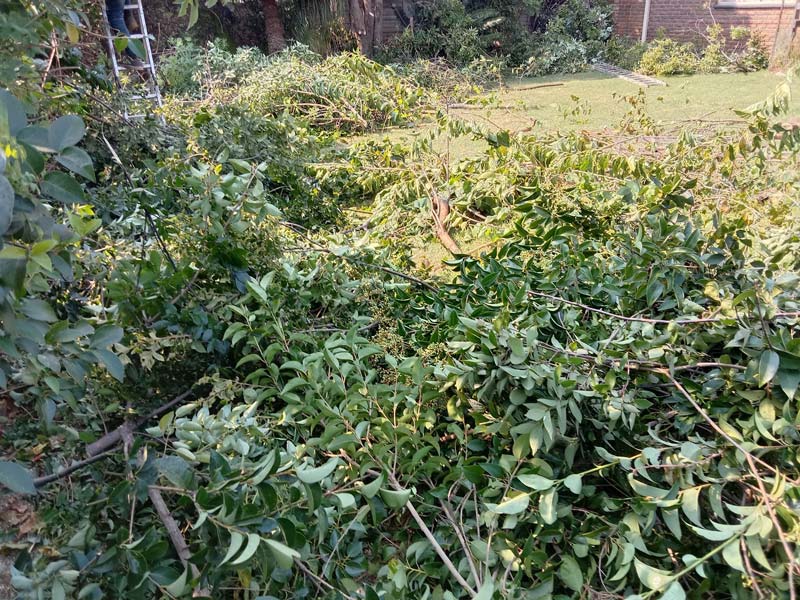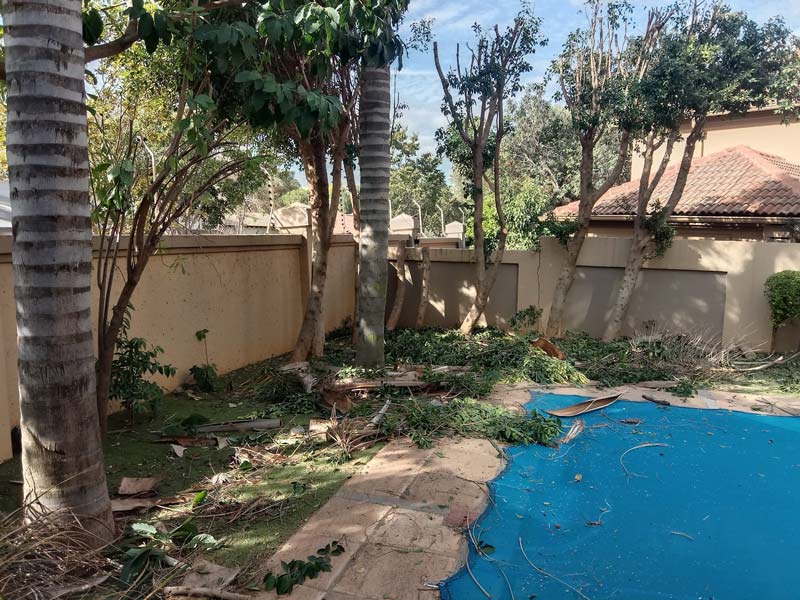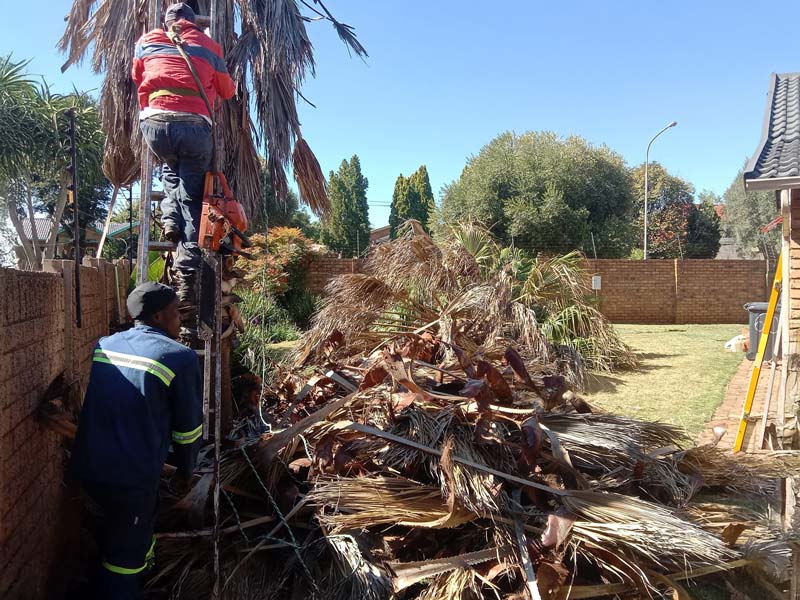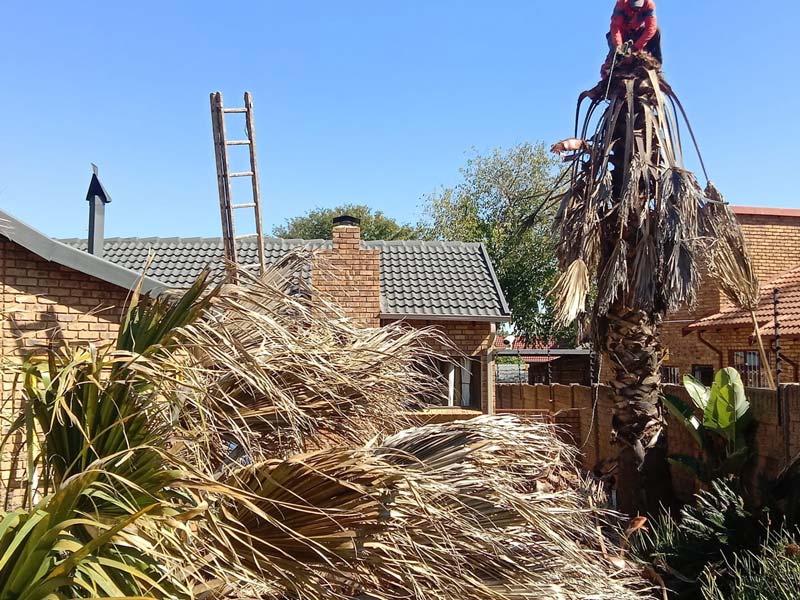In Pretoria East, homeowners should prune no more than 25-30% of live foliage at once. This guideline helps maintain tree health and prevents shock. It is vital to prioritise the removal of dead or diseased branches while making clean cuts with proper tools. Furthermore, evaluating the surrounding area for safety hazards is essential. For those looking to guarantee effective pruning techniques, there are local professionals who can provide significant assistance. More information about pruning practices and services is available.
Tree Pruning Regulations in Pretoria East
Comprehending tree pruning regulations in Pretoria East is essential for homeowners and businesses alike, as noncompliance can lead to significant penalties.
Municipal regulations require permits for pruning or removing protected trees, especially indigenous species. The National Forests Act mandates adherence to these laws to conserve urban greenery. Tree removal permits are necessary to protect natural heritage in these cases. Professional guidance can also ensure that the pruning methods used promote health and safety in tree management.
Homeowners should identify protected trees before any work begins. Grasping local bylaws is critical, as not all trees need permits.
However, consulting with professionals guarantees compliance and improves community responsibility. Seeking the guidance of experienced arborists like those at Pretoria East Tree Felling can simplify the process, assuring safety and adherence to regulations.
Best Practices for Pruning Quantity
Comprehending the ideal quantity for tree pruning is essential for maintaining tree health and preventing long-term damage. To enhance pruning, practitioners should employ proper pruning techniques, focusing on removing no more than 25-30% of live foliage at any one time. Understanding the tree trimming costs can also influence how often pruning is scheduled. Prioritise dead or diseased branches while ensuring cuts are clean, using the right pruning tools. Regular, smaller sessions are preferred over drastic cuts to promote healthy regrowth. Additionally, employing sectional cutting techniques can further ensure safety and precision during the pruning process. Small trees tolerate more aggressive pruning, while larger specimens generally require a conservative approach.
Types of Pruning and Seasonal Considerations
When considering tree maintenance, comprehending the various types of pruning techniques is essential for promoting healthy growth and longevity. Crown cleaning focuses on removing dead or diseased branches, improving tree health while minimising risks. In contrast, crown thinning selectively removes branches to boost light and air circulation, offering structural benefits. Seasonal considerations impact these practices, with pruning generally recommended every 3-5 years. Additionally, implementing safety measures during pruning ensures the protection of both the workers and the surrounding environment.
| Pruning Type | Key Benefits |
|---|---|
| Crown Cleaning | Prevents disease spread, improves aesthetics |
| Crown Thinning | Boosts light penetration, reduces wind resistance |
| Crown Reduction | Controls size for urban spaces |
| Crown Lifting | Increases clearance for safety |
| Seasonal Timing | Aligns with growth patterns for best results |
Tree Health and Safety in Pruning Decisions
Tree health and safety are paramount considerations when making pruning decisions. Proper assessment of a tree’s condition can greatly improve tree vitality while minimising pruning stress.
Pruning is a delicate balance, and several factors should guide decisions:
- Limit canopy removal to 25-30% to prevent shock.
- Assess surroundings for hazards, including proximity to structures.
- Employ personal protective equipment for safer practices.
- Hire qualified arborists to guarantee trained execution.
These guidelines cultivate responsible pruning techniques, improving the tree’s long-term health and safety. Additionally, engaging with certified experts can provide invaluable insights into optimal pruning practices for specific tree species.
Awareness of these best practices allows for a supportive community of tree care enthusiasts, promoting both environmental and personal safety.
Local Professional Services and Support
Local professional tree care services in Pretoria East provide essential support for homeowners and businesses who seek assistance with tree maintenance and management.
These companies, equipped with local knowledge, offer a range of services including pruning, tree felling, and stump removal, ensuring safety and professional standards are met.
Their service availability often includes 24/7 emergency response, guaranteeing prompt attention to urgent needs.
Clients can rely on transparent pricing and free consultations to make informed decisions.
By selecting local professionals, individuals contribute to their community while ensuring their trees receive the care necessary for health and safety. Moreover, these experts emphasise professional tree shaping to enhance the structure and longevity of trees in the area.
Environmental and Garden Maintenance Context
Pruning, a critical component of garden maintenance, plays an essential role in improving both plant health and the overall aesthetic of an environment.
Effective pruning techniques not only promote healthy growth but also support ecosystem benefits.
- Encourages new, vigorous growth
- Reduces pest and disease risk
- Improves the visual appeal of surroundings
- Minimises water waste through sustainable practices
- Regular pruning and routine care contribute to the overall health and beauty of your garden.
